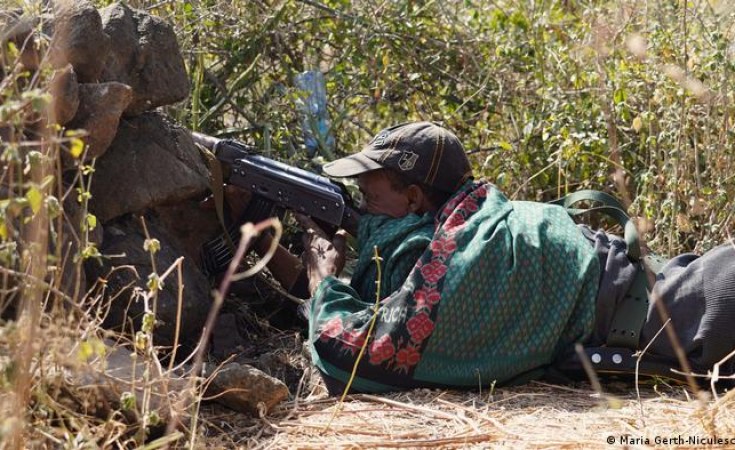With a truce recently signed and a history of ethnic tensions, Ethiopia faces a myriad of challenges. As a result, Prime Minister Abiy Ahmed's government has embarked on a national dialogue hoping to silence the guns.
After a two-year devastating civil war, the federal government of Ethiopia and the Tigray People's Liberation Front (TPLF) signed a peace treaty on November 2, 2022.
Both parties vowed that they were determined to make the peace deal last. So far, the fighting between the two sides has ceased, and there are signs of an end to the bloody civil war.
However, people still worry that the fragile calm could be shattered at any time unless both sides keep their promises.
Observers say that in addition to silencing the guns, it is imperative to reach a long-term political settlement in the area, especially in Tigray, Amhara, and Afar regions, which were worst affected by the violence.
A time for peace
Dr. Yonas Adaye, head of the Ethiopian National Dialogue Commission, told DW that leaders must resolve their differences through dialogue.
"There is time and seasons for war, and there is time for peace, as the wise [King] Solomon says," Adaye said, adding that now is the time for peace.
He said the commission did not have a specific timetable. However, he hinted that they were preparing to go to Tigray and talk to the people, having witnessed "very positive developmentover there."
Ethnic-based federalism
The Tigray People's Liberation Front (TPLF) once ruled and dominated Ethiopia for more than two decades. During its reign, the TPLF established a complex ethnic-based political system.
According to Dr. Taye Negussie, a researcher and political scientist at Addis Ababa University, Ethiopia's warring sides must be willing to forgive each other and reconcile.
"They may not forget what happened and move on, but they can learn to forgive and live with it," Negussie said.
In February 2022, the rights group Amnesty International issued a report stating that armed fighters of the TPLF had killed civilians and raped women and girls in the northern Amhara region of Ethiopia.
'Time is a healer'
It's a great step to come to political reconciliation on a national level," Negussie said, adding that time is a healer. "For this to happen, social and economic transactions between people on a communal level must be restarted, regardless of signing on paper between officials," Negussie said.
He added that the healing process would begin from the bottom-up level when this happens. However, he warned that some factors might jeopardize the peace process.
"One is that global and social media fuelled the fire for their interest, and the other is that if there is no legal investigating and seeking accountability for atrocities committed by all parties during the conflict."
Premier Abiy's appeal
Ethiopia's Prime Minister Abiy Ahmed has urged scholars to recognize the current situation and play a positive proper role in ensuring long-term peace.
Residents of Addis Ababa are pleased with the peace agreement and have called on their leaders to resolve their differences at the negotiating table.
"It is time for a new hero now that we have been celebrating war heroes for so long," Adene Berhanu, a resident of Addis Ababa, told DW. "I want my generation to have its own hero who believes in dialogue."
She said women and children were the most affected by this conflict, and it is time to end it.
"We live in the twenty-first century, and anything is possible with discussion."
For Meheret Belachew, another resident in the capital, peace remains elusive in the country. "There is no peace in the country from beginning to end. What we're hearing is terrifying," Belachew told DW.
"Every minute and second, there is a problem that causes us to be concerned. It is pointless to have a single peace treaty if the rest of the country is not."
She regretted that every conflict is a source of pain for Ethiopians, and in her opinion: "This is because of the government's failure."
Edited by: Chrispin Mwakideu


